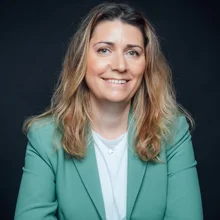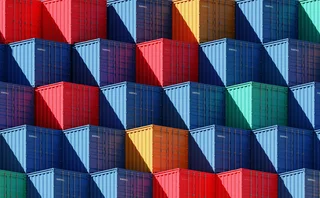
Commodity trade finance house of the year: Societe Generale
Energy Risk Awards 2023: Bank’s rapid response to funding helps firms weather liquidity crunch

Russia’s invasion of Ukraine and the lingering impact of the global pandemic created extraordinary market conditions in 2022. Volatility, rising inflation, interest rate hikes, energy price increases and huge spikes in margin calls left many commodity producers and consumers facing a liquidity crunch.
Throughout 2022, Societe Generale provided vital trade financing to its clients, often performing underwriting roles that were unprecedented for the sector. Its work included creating and structuring credit facilities to enable firms to manage price volatility and margining; providing borrowing facilities that addressed energy and food-security issues in the face of geopolitical friction; structuring transactions that ensured the trade flow of metals to countries where they were critical for the economy or of strategic importance for the energy transition; and helping firms reach their sustainable and decarbonisation goals.
Many of these deals included firsts of their kind and illustrated Societe Generale’s innovative thinking, collaborative skills and broad financial and commodities expertise.
For example, in September 2022, Trafigura signed a ground-breaking $800 million, five-year loan facility that was underwritten and arranged by Societe Generale. The loan is syndicated to seven participating banks and guaranteed by the German government acting through the German export credit agency (ECA) Euler Hermes. The guarantee is Euler Hermes’ first corporate untied loan facility signed under its Untied Corporate Loan Programme, which aims to secure the long-term delivery of strategic commodities to Germany. In exchange for offering cover on the financing, Trafigura has committed to a new five-year agreement to supply up to 500,000 tonnes of non-ferrous metals into Germany. The deal is one of Trafigura’s first ECA-backed transactions in Europe.
The agreement included a review of Trafigura’s environmental, social and governance (ESG) policies and performance. The facility was over-subscribed and the underwriting process was concluded in record time for an export finance transaction, according to Societe Generale.

“The deal is a concrete illustration of an ECA’s innovative push to actively support the energy transition in Europe and, in this case, enable Germany to secure strategic material supply,” says Ludivine Labarre, global head of trade & sustainable commodity finance.
Another noteworthy example of the bank’s work last year is a five-year $600 million pre-export financing (PXF) transaction with nonferrous metals and mining business CMOC Group. The main purpose of the term facility was to finance the niobium production activities of CMOC’s subsidiary CMOC Brazil, the world’s second-largest producer of niobium. The PXF transaction is one of the first by a Chinese mining company and has one of the longest international PXF terms.
The financing was raised against future production and export of niobium by CMOC Brazil to an international metal trader. It was upsized to further support the production of phosphates and niobium. Both niobium and phosphates are classified as critical raw materials by the European Commission.
“With a Chinese sponsor, a Brazilian asset and a European offtaker, this transaction is a truly global deal,” says Caden Ng, regional co-head of mining, metals and industries finance for Asia-Pacific. “The structure converts a corporate unsecured exposure into a performance-based and self-liquidating amortising financing.”
In work that showcases Societe Generale’s climate and sustainability capabilities, the bank signed a deal with Concord Resources, a non-ferrous metals commodity merchant, to pilot access to sustainability-linked loans tied to climate-related key performance indicators (KPIs). The agreement is enabled by CarbonChain, a carbon accounting software provider for the commodities sector. Both Concord and Societe Generale have access to Concord’s greenhouse gas emissions reports and progress-tracking dashboard on CarbonChain’s platform, covering all financed trades. If implemented, a sustainability-linked loan will offer Concord special trade finance terms, contingent on meeting agreed, ambitious emissions-reduction targets over a 12-month period against a 2021 baseline.

“The pilot is a major milestone in Concord’s climate journey providing a vital incentive for this global resources merchant to meet its sustainability objectives,” says Deia Markova, Societe Generale’s head of trade & sustainable commodity finance for Switzerland.
Concord has been comprehensively tracking and reporting its end-to-end trade supply chain emissions via CarbonChain’s platform for nearly two years. “Banks increasingly want transparency and action in their carbon-intensive portfolios. They want to reward low-carbon trades and products, but they generally lack the carbon data to do so,” says Markova. “This agreement is a key milestone for us and the industry. Collaboration between traders, banks, suppliers and producers is key to tackling carbon risk and getting ahead of regulation.”
Only users who have a paid subscription or are part of a corporate subscription are able to print or copy content.
To access these options, along with all other subscription benefits, please contact info@risk.net or view our subscription options here: http://subscriptions.risk.net/subscribe
You are currently unable to print this content. Please contact info@risk.net to find out more.
You are currently unable to copy this content. Please contact info@risk.net to find out more.
Copyright Infopro Digital Limited. All rights reserved.
As outlined in our terms and conditions, https://www.infopro-digital.com/terms-and-conditions/subscriptions/ (point 2.4), printing is limited to a single copy.
If you would like to purchase additional rights please email info@risk.net
Copyright Infopro Digital Limited. All rights reserved.
You may share this content using our article tools. As outlined in our terms and conditions, https://www.infopro-digital.com/terms-and-conditions/subscriptions/ (clause 2.4), an Authorised User may only make one copy of the materials for their own personal use. You must also comply with the restrictions in clause 2.5.
If you would like to purchase additional rights please email info@risk.net
More on Commodities
Energy Risk Asia Awards 2024: The winners
Winning firms adapt to change with exemplary risk management skills
Foreign funds are bulls in China’s onshore commodity futures
Growing participation from overseas investors is boosting liquidity in what’s already a boom market
Energy Risk Software Rankings 2024: IT demands increase amid rising risk
Heightened geopolitical and credit risk increase requirements on commodities software
Energy Risk Asia Awards 2023: The winners
Winning firms demonstrate resilience and robust risk management amid testing times
ION Commodities: addressing the market’s recent pain points
Energy Risk Software Rankings winner’s interview: ION Commodities
Energy Risk Commodity Rankings 2023: adapting to new market dynamics
Winners of the 2023 Commodity Rankings provided reliability when clients faced extreme change
Energy Risk Software Rankings 2023: managing uncertainty
Unpredictable markets make CTRM software choices key
Navigating the volatility and complexity of commodity markets
Commodity markets have experienced significant challenges since the Covid-19 pandemic, the conflict in Ukraine and the subsequent sanctions imposed on Russia. These unprecedented events have caused fluctuations in supply and demand, disrupted global…








